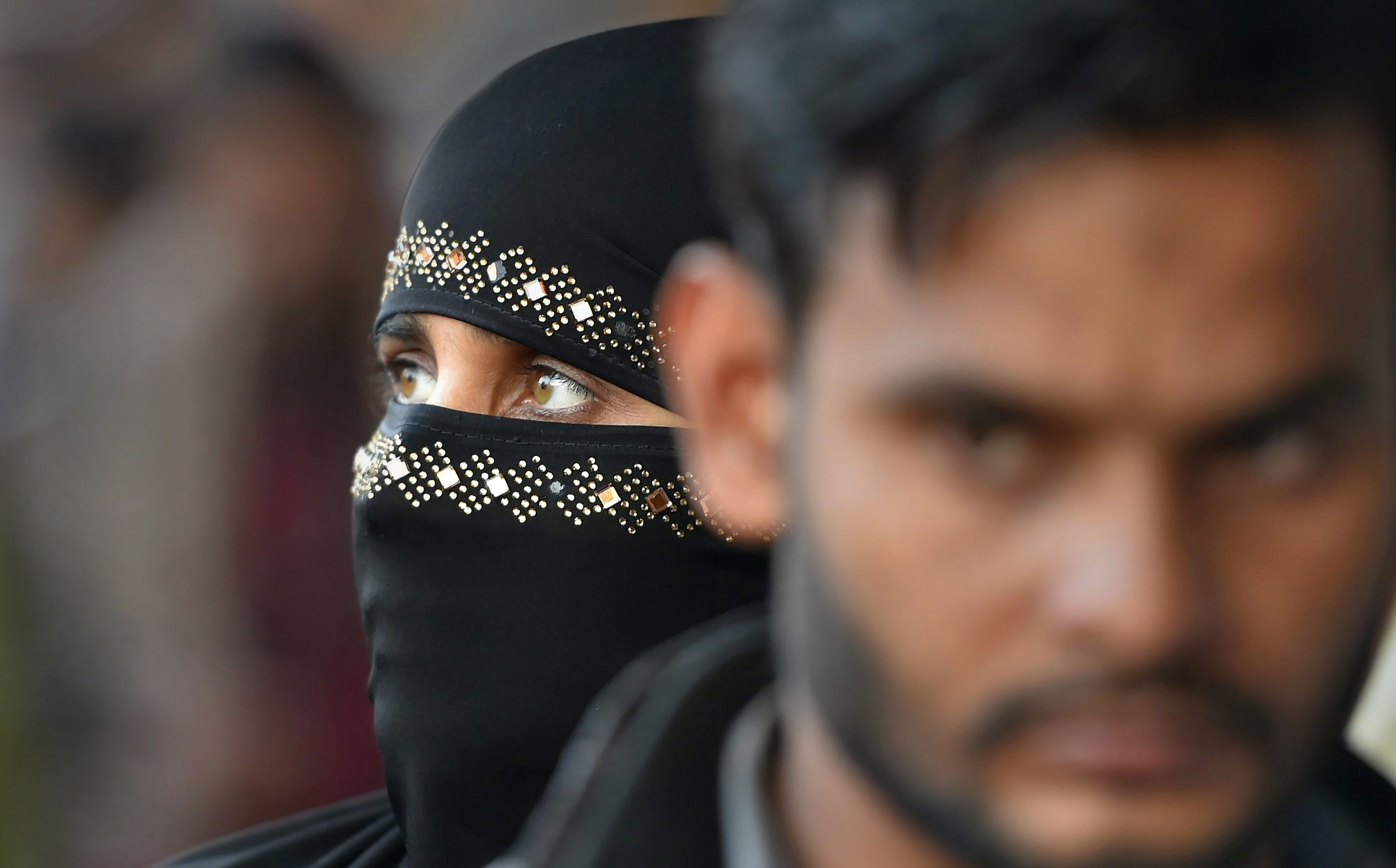
Triple talaq law a travesty of justice but triumph of politics
For those who find the issue of triple talaq complex, the easiest explanation is in the 1980s BR Chopra blockbuster originally titled, ‘Talaq, Talaq, Talaq’ but was later released as ‘Nikaah’.

For those who find the issue of triple talaq complex, the easiest explanation is in the 1980s BR Chopra blockbuster originally titled, ‘Talaq, Talaq, Talaq’ but later released as ‘Nikaah’.
In that film, Deepak Parashar gets upset with his beautiful wife Salma Agha, the hazel-eyed actor from Pakistan whose looks and dulcet voice once mesmerised India. In a fit of anger, Nawab Wasim (Parashar) says, “talaq, talaq, talaq” and the marriage is annulled. Just like that. Gone in seconds.
This practise of annulling a marriage by saying, “I divorce you” thrice is called talaq-e-biddat. It is banned in most parts of the world, including Pakistan. And till recently, before the Supreme Court declared it illegal, it was prevalent among India’s Sunni Muslims.
On Tuesday (July 30), the Rajya Sabha started debating the Muslim Women (Protection of Rights on Marriage) Bill 2019, which makes talaq-e-biddat a punishable offence. According to the Bill, any man found guilty of practising triple talaq can be imprisoned for a period of up to three years. The Bill makes the crime cognisable and non-bailable and makes it binding on the husband to pay a subsistence allowance to his wife and dependent children.
With the JD(U), AIADMK and BSP walking out of the Rajya Sabha, the Bill coasted through the Upper House with 99 MPs supporting the Bill and 84 voting against it. Having already received the assent of the Lok Sabha, it will turn into a law.
Also Read: Triple Talaq law cleared by Lok Sabha, Rajya Sabha challenge next
Law vs tradition
When the validity of triple talaq was challenged in the Supreme Court, Congress leader and prominent lawyer Salman Khurshid, acting as an amicus curiae, had called it a gunah (sin) that can’t be condoned by Islam.
Reacting to the argument that triple talaq gets its mandate from Sharia, he had said, “Sin cannot be part of Sharia, which is God ordained.” He then went on to argue that “something which is sinful for the law ordained by God cannot be legal.”
What Khurshid essentially meant was this: Muslims who divorce their wives just by saying talaq three times are sinners in the eyes of Allah. This stand has been vindicated by several scholars who claim that talaq-e-biddat is not only haram (illegal) but also a gunah.
Yet, it was practised widely in India over centuries. And marriages annulled through talaq-e-biddat were instantly annulled. Like in the film ‘Nikaah’.
The basic argument proffered in its favour was that that triple talaq is part of the religious rights of Muslims. Its advocates argued that any interference in the practise would be tantamount to meddling in the Muslim Personal Law.
When a five-member Constitution bench of the Supreme Court decided on the validity of triple talaq, two of the judges were not in favour of declaring it unconstitutional primarily on the basis of the argument that it was integral to the religious beliefs of Muslims and part of their personal law.
But, three other judges declared triple talaq illegal and the provisions in the Muslim Personal Law that support it as null and void.
In essence, triple talaq became illegal, null and void.
Also Read: Cabinet clears fresh triple Talaq bill, to introduce in budget session
The politics of triple talaq
So, why is the Narendra Modi government keen on bringing in a law that criminalises a practise that has already been outlawed by the Supreme Court?
The simple answer, as argued by the government is that it is acting on humanitarian grounds for the welfare of women. It is, as its ministers have said ad nauseam in and outside the Parliament, wants to protect Muslim women from a cruel, sinful practice.
Protecting women from a practise that’s already been outlawed by India’s top court? Would it not be simpler to ensure that triple talaq is not enforced in the first place?
The Muslim Women (Protection of Rights on Marriage) Bill 2019, in a convoluted way actually ends up doing what the court is trying to avoid: make triple talaq enforceable, give it legitimacy, break families and turn a civil issue into a criminal case.
Its other criticisms include giving police the rights to arrest without taking the permission of a court and prescribing an alimony — a post-divorce settlement — even when the marriage continues to exist legally.
The simplest solution would have been to treat triple talaq as an empty threat and recognise only those divorces that have gone through the requisite legal process, like in the case of Hindu women.
Supporters of criminalisation of triple talaq argue that the practice has continued in spite of it being declared illegal — that there have been around 300 cases of divorce since the Supreme Court verdict.
But, all such cases should ideally be treated as instances of abandonment. A separate law that deals with abandonment applied equally to all faiths and religions would have given the government’s intentions a higher degree of legitimacy.
Since the new law is being framed only for Sunni Muslims, the BJP, considering its history, would always be accused of being selective. Its critics would always look at the proposed law as a tool to “straighten up” Muslim men and play to its Hindutva galleries.
In the end, it is just about uttering three words. Instead of putting up mechanisms to ensure they are not taken seriously, the government has framed a law for meting out a harsh punishment for men of a particular religion.


